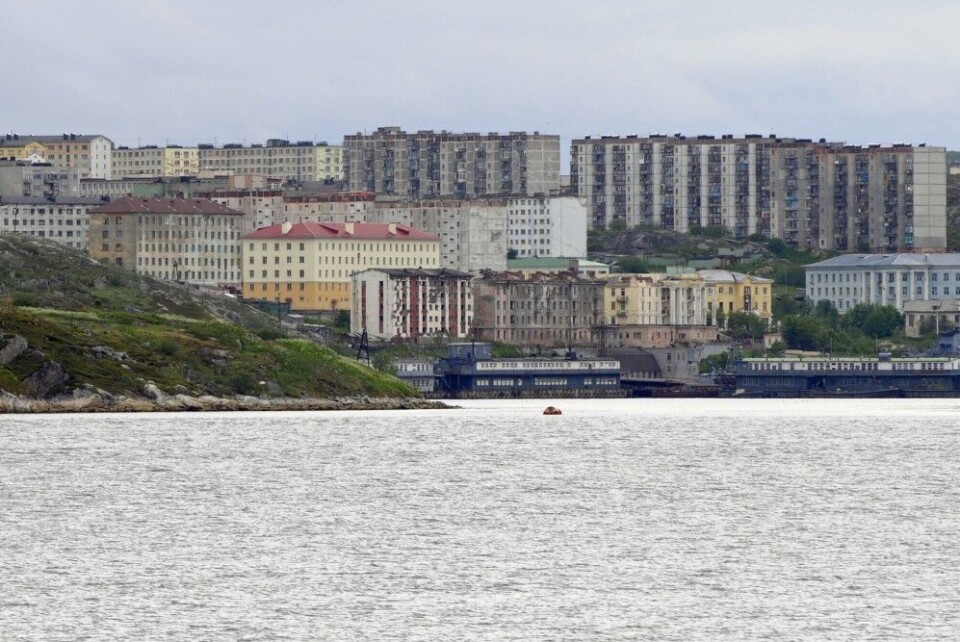
FSB starts detaining Jehovah’s Witnesses on Kola, dozens flee to Finland
Criminal cases are initiated after FSB and Rosgvardia raided six addresses in the closed navy town of Polyarny.
p.p1 {margin: 0.0px 0.0px 0.0px 0.0px; font: 11.0px ‘Helvetica Neue’; color: #000000; -webkit-text-stroke: #000000}p.p2 {margin: 0.0px 0.0px 0.0px 0.0px; font: 11.0px ‘Helvetica Neue’; color: #000000; -webkit-text-stroke: #000000; min-height: 12.0px}span.s1 {font-kerning: none}
Last April, a ruling by Russia’s Supreme Court banned all Jehovah’s Witnesses organizations throughout the country, arguing the religious group to be extremist.
On Friday, Murmansk regional authorities’ newspaper Murmanski Vestnik reports about raids made by FSB and the National Guard of Russia (Rosgvardia) in Polyarny on the Kola Peninsula.
Two local residents were detained under suspicions of being members of the administrative centre of Jehovah’s Witnesses in Russia, organizing teaching and meetings where reading of banned religious literature took place. Searches were carried out at six addresses in Polyarny.
The town is home to a naval yard and several of the diesel-powered submarines and other warships of the Northern Fleet have Polyarny as homeport.
The extremist law banning Jehovah’s Witnesses in Russia provides for a maximum sentences of 6 to 10 years in jail.
Meanwhile, a wave of practicing Jehovah’s Witnesses are fleeing Russia. More than a thousand people are now seeking asylum in several European countries, including Finland, the newspaper Helsingin Sanomat reported earlier this winter.
«It all started last summer, and that’s when the first Witnesses sought asylum in Finland, spokesperson Veikko Leininen with the organization’s Finnish branch told the newspaper.
«Many dozens at least are still to come,» he said.
Press adviser Therese Bergwitz-Larsen with the Norwegian Directorate of Immigration (UDI) can’t go into details about particular reasons for asylum seekers coming to Norway.
«Unfortunately, we can’t say anything in general on the background for reasons to apply for asylum, since the number [from Russia] is so small,» Bergwitz-Larsen tells the Barents Observer.
Statistics from UDI show that 15 persons came from Russia the first three months this year. In 2017, 58 Russian asylum seekers came to Norway.
p.p1 {margin: 0.0px 0.0px 0.0px 0.0px; font: 11.0px ‘Helvetica Neue’; color: #000000; -webkit-text-stroke: #000000}p.p2 {margin: 0.0px 0.0px 0.0px 0.0px; font: 11.0px ‘Helvetica Neue’; color: #000000; -webkit-text-stroke: #000000; min-height: 12.0px}span.s1 {font-kerning: none}
In Russia, the number of Jehovah’s Witnesses are estimated to about 175,000. That be, before the organization was declared extremist. Viewed with skepticism for denying military service, voting and refusal to take blood, the members are seen as both a threat to themselves, their children and public safety.
Also during Soviet times, the Witnesses were persecuted.
Human Right Watch recently called on Russian authorities to drop charges against Danish citizen Dennis Christensen adherent for practicing his faith. Christensen has been in pretrial custody for 11 months in the town of Orel. Human Right Watch argues that Russia is a member of Council of Europe and p.p1 {margin: 0.0px 0.0px 0.0px 0.0px; font: 11.0px ‘Helvetica Neue’; color: #000000; -webkit-text-stroke: #000000}span.s1 {font-kerning: none}a party to the European Convention on Human Rights, and therefor is obligated to protect the rights to freedom of religion and association.
















